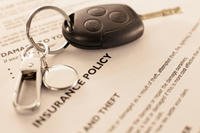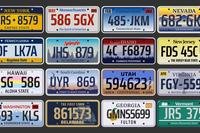Overseas assignments carries a lot of loose ends back on the mainland, one of which is what to do about your car. Provided you're permitted a POV (privately owned video) the next step will be making sure you have adequate coverage in case something happens. Fortunately, a lot of insurance companies understand the unusual situations that military personnel face and they've come up with great plans to make sure you have peace of mind during your relocation.
Before your military PCS, make sure having a vehicle overseas is worth the extra money and responsibility. Public transportation in many modern countries is oftentimes preferred, as having a car in a place like the UK for example is often cost-prohibitive. Many car insurance companies will give military members a special storage or away rate to keep your car insured while you put it into storage or keep it on a military base.
Companies like Geico offer 12-month overseas policies with competitive rates and all the required documentation you'll need at your new destination. They will even handle the paperwork necessary for your vehicle registration. Geico also has a 'marine insurance' policy to cover cars over $20,000 while they are being shipped across the ocean. They offer up to 15% off your policy for being in the military.
Something else that needs to be considered is your final destination. Each country has unique rules about car insurance coverage. Some are laxer than others. Some countries have high standards for liability insurance, for example, while other countries do not require auto insurance at all. In addition, insurance can vary greatly from region to region. Countries like the UK, Germany and Austria have high insurance rates, while a place like India has very reasonable rates.
While some insurance coverage can be optional, if you're sending your car overseas it might be a good idea to opt for some of this coverage just to be protected. Here are a few worth considering when buying auto insurance:
1. Collision car insurance coverage: this covers damage to your own vehicle when you collide with either another vehicle or real property.
2. Glass and/or windshield coverage: in the event an object strikes your windshield while you're driving, having windshield coverage can save you several hundred dollars in out-of-pocket repairs.
3. Comprehensive auto coverage: this type of car insurance coverage handles damages caused by fire, theft, flood, hail, falling objects, etc. The premiums for comprehensive coverage are determined by several factors, including replacement cost and stats for crime (theft and vandalism) in your new region. It is suggested by experts that you carry 10 percent more in full comprehensive coverage than the cost of your vehicle. This can be especially important in certain countries that are prone to natural disasters.
When it comes to mandatory insurance, most of the modern countries have similar requirements
1. Bodily injury liability insurance: This type of coverage pays for the medical bills of folks who were injured in an accident with the policy owner. Medical bills can destroy a person's life savings, so this type of auto insurance is incredibly important. Just about every advanced country requires at least some level of protection so make sure you know the minimums in your new country.
2. Personal injury protection: This coverage handles the accident-related medical needs of the people in your vehicle. The driver can be sued for injury so having this coverage can really protect you from damages. While in some foreign countries medical bills are inexpensive (or even free) you still don't want a lawsuit on your hands from an injured passenger.
3. Property damage liability: If you slide off a narrow road in Germany and hit your new neighbor's front porch, this will pay for the damages. Having this coverage can also prevent lawsuits. Also consider the road conditions as well as the weather in your new country. Snow and ice could mean loss of control and if you hit a building or another structure this will handle the damages.
Just like in the United States, make sure you always have your insurance information with you every time you drive. Be mindful of where you park. Do not leave valuables in your vehicle, no matter where you live. Keep good maintenance records. Review your policy with your car insurance company before you head overseas. Do a little research on how much time you have before you're required to have a driver's license for that particular country. Double check your paperwork and your new registration. However, before you do anything, make sure you read up on the rules for shipping your car overseas.
It pays to shop around for overseas car insurance for Armed Forces personnel. Every company is different and each one has a uniquely tailored plan for both active military and veterans. In the event of an accident overseas, you'll be glad you did your car insurance homework.













